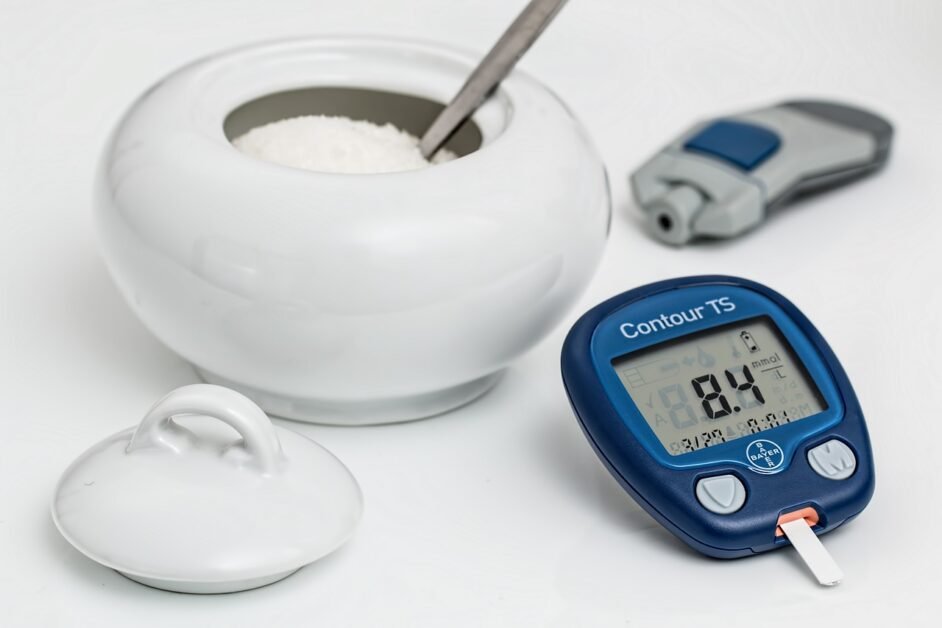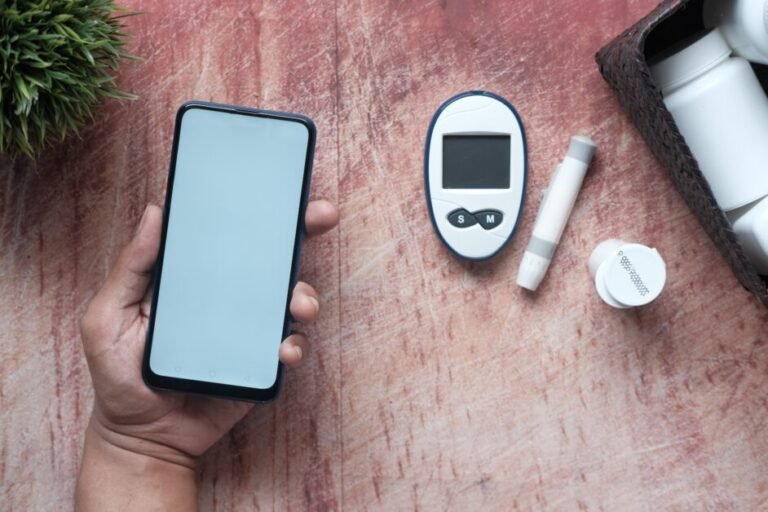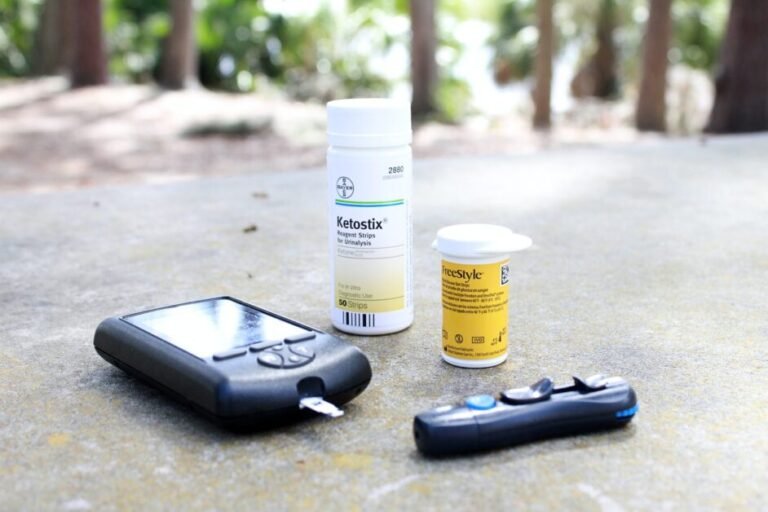The Link Between Sugar and Diabetes: Explained
In “The Link Between Sugar and Diabetes: Explained,” this article explores the connection between sugar consumption and diabetes. Providing valuable tips and advice for individuals with diabetes or their family and friends, it aims to shed light on whether the condition is truly caused by sugar. With a friendly tone and a focus on delivering helpful information, this article aims to empower readers with a better understanding of diabetes and its relationship to sugar.
Table of Contents
I. Overview of Diabetes
A. Definition of Diabetes
Diabetes is a chronic medical condition characterized by high levels of glucose (sugar) in the blood. It occurs when the body either doesn’t produce enough insulin or cannot effectively use the insulin it produces.
B. Types of Diabetes
There are three main types of diabetes: type 1, type 2, and gestational diabetes. Type 1 diabetes is an autoimmune disease where the immune system mistakenly attacks the insulin-producing cells in the pancreas. Type 2 diabetes is the most common type, and it occurs when the body becomes resistant to insulin or doesn’t produce enough insulin. Gestational diabetes develops during pregnancy and usually resolves after childbirth.
C. Prevalence of Diabetes
Diabetes is a global health concern, affecting millions of people worldwide. According to the International Diabetes Federation, approximately 463 million adults were living with diabetes in 2019, and this number is expected to rise to 700 million by 2045. The increase in diabetes prevalence is attributed to various factors such as sedentary lifestyles, unhealthy diets, and obesity.
II. Understanding Blood Sugar
A. What is Blood Sugar?
Blood sugar, also known as blood glucose, refers to the concentration of glucose in the bloodstream. Glucose is the main source of energy for the body’s cells and is derived from the breakdown of carbohydrates in the diet. Maintaining stable blood sugar levels is crucial for optimal body functioning.
B. Regulation of Blood Sugar
The body regulates blood sugar levels through a complex feedback system involving hormones and organs. When blood sugar rises after a meal, the pancreas releases insulin, a hormone that enables cells to absorb glucose from the bloodstream and use it for energy or store it for later use. On the other hand, when blood sugar levels drop, the pancreas releases glucagon, which stimulates the liver to release stored glucose into the bloodstream.
C. Normal Blood Sugar Levels
Normal blood sugar levels can vary depending on several factors, including whether a person has eaten recently. Generally, a fasting blood sugar level between 70-99 mg/dL (3.9-5.5 mmol/L) is considered normal. Postprandial (after-meal) blood sugar levels should ideally be below 140 mg/dL (7.8 mmol/L) two hours after eating.

III. The Role of Insulin
A. What is Insulin?
Insulin is a hormone produced by the beta cells of the pancreas. Its primary role is to regulate blood sugar levels by allowing cells to take in glucose from the bloodstream. Insulin also helps store excess glucose in the liver and muscles as glycogen, which can later be converted back into glucose when needed.
B. Insulin Resistance
In cases of insulin resistance, the body’s cells become less responsive to the effects of insulin, leading to higher levels of glucose in the blood. Over time, this can contribute to the development of type 2 diabetes. Insulin resistance can be influenced by factors such as obesity, physical inactivity, and genetic predisposition.
C. Insulin and Diabetes
In type 1 diabetes, the body’s immune system mistakenly attacks and destroys the beta cells of the pancreas, leading to the inability to produce insulin. As a result, individuals with type 1 diabetes must take insulin injections or use an insulin pump to manage their blood sugar levels. In type 2 diabetes, the body either doesn’t produce enough insulin or is unable to use it effectively, necessitating lifestyle changes, oral medications, or insulin therapy.
IV. The Link Between Sugar and Diabetes
A. How Sugar Affects Blood Sugar Levels
Consuming foods high in sugar can cause a rapid increase in blood sugar levels. When sugar is consumed, it is broken down into glucose, causing a surge in blood sugar. This triggers the pancreas to release insulin to help regulate the elevated blood sugar levels. However, excessive sugar consumption can overwork the pancreas and contribute to insulin resistance.
B. Sugar Consumption and Type 2 Diabetes
While sugar consumption alone does not directly cause type 2 diabetes, a diet high in added sugars and sugary beverages is linked to an increased risk of developing the disease. Consuming excessive amounts of sugar can lead to weight gain, obesity, and insulin resistance – all risk factors for type 2 diabetes. It is important to focus on a balanced diet and limit added sugar intake.
C. Sugar and Gestational Diabetes
During pregnancy, some women may develop gestational diabetes, a temporary condition that usually resolves after childbirth. Excessive sugar intake can contribute to gestational diabetes, as the hormonal changes during pregnancy can make it harder for the body to use insulin effectively. Keeping sugar intake in moderation and following a healthy eating plan is essential for managing gestational diabetes.

V. The Impact of Added Sugars
A. Sources of Added Sugars
Added sugars are sugars and syrups that are added to foods and beverages during processing or preparation. Common sources of added sugars include sugary drinks, candies, cakes, cookies, sweetened cereals, and processed snacks. It is important to distinguish between natural sugars, such as those found in fruits, and added sugars, which provide no nutritional value.
B. Effects of Excessive Sugar Intake
Consuming excessive amounts of added sugars can contribute to weight gain, increased risk of obesity, and the development of chronic conditions like type 2 diabetes, heart disease, and certain types of cancer. Additionally, foods high in added sugars tend to be calorie-dense but nutrient-poor, leading to imbalances in nutrient intake.
C. Sugar and Risk Factors for Diabetes
High sugar intake can contribute to obesity and insulin resistance, which are risk factors for the development of type 2 diabetes. The excess calories from added sugars contribute to weight gain, and the resulting insulin resistance can impair the body’s ability to regulate blood sugar levels effectively. Reducing sugar intake can help mitigate these risk factors and promote better overall health.
VI. Managing Sugar Intake with Diabetes
A. Importance of a Balanced Diet
For individuals with diabetes, maintaining a balanced diet that includes a variety of nutrient-dense foods is essential. This includes consuming adequate amounts of lean proteins, whole grains, fruits, vegetables, and healthy fats while limiting added sugars. Balancing carbohydrate intake, along with proper portion control, can help manage blood sugar levels effectively.
B. Monitoring Carbohydrate Intake
Carbohydrates, including sugars, have the most significant impact on blood sugar levels. Monitoring carbohydrate intake and spreading it evenly throughout the day can help individuals with diabetes manage blood sugar levels more effectively. Healthcare professionals often provide guidance on carbohydrate counting and meal planning to assist in this process.
C. Recommended Sugar Intake for Diabetics
The American Diabetes Association recommends that individuals with diabetes limit their intake of added sugars. Specifically, men should aim for no more than 9 teaspoons (36 grams) of added sugars per day, while women should aim for no more than 6 teaspoons (24 grams). However, it is important to note that individual needs may vary, and personalized guidance from healthcare professionals is ideal.

VII. Misconceptions about Sugar and Diabetes
A. Sugar as the Sole Cause of Diabetes
While excess sugar consumption can contribute to the development of type 2 diabetes and other health problems, it is not the sole cause of diabetes. Type 2 diabetes is a multifactorial condition influenced by genetics, lifestyle factors, and overall diet quality. It is important to consider the entire spectrum of factors when discussing the causes of diabetes.
B. The Role of Sugar in Type 1 Diabetes
Type 1 diabetes is an autoimmune disease not directly caused by sugar consumption. It occurs when the immune system mistakenly attacks the insulin-producing beta cells in the pancreas. Individuals with type 1 diabetes still need to manage their blood sugar levels and consider their carbohydrate intake but should not blame sugar as the primary cause of their condition.
C. Sugar Substitutes and Diabetes
Sugar substitutes, also known as artificial sweeteners or non-nutritive sweeteners, provide an alternative to sugar for individuals with diabetes. They provide sweetness without significantly impacting blood sugar levels. However, it is important to use sugar substitutes in moderation and consider the individual’s overall dietary choices and preferences.
VIII. Tips for Reducing Sugar Consumption
A. Reading Food Labels
Reading food labels is crucial in identifying added sugars in packaged foods. Learning to recognize alternative names for sugar, such as high fructose corn syrup, sucrose, or maltose, can help individuals make informed choices. Opting for foods with no or low added sugar content and focusing on whole, unprocessed foods can significantly reduce sugar intake.
B. Choosing Healthy Alternatives
Replacing sugary drinks with water, unsweetened tea, or sparkling water is an effective way to reduce sugar intake. Choosing fresh fruits or unsweetened snacks instead of processed sweets can also satisfy cravings while providing essential nutrients. Gradually reducing sugar in recipes or using natural sweeteners like stevia or fruit puree can help transition to lower sugar options.
C. Managing Sugar Cravings
Managing sugar cravings requires finding suitable alternatives and exploring the root causes for cravings. Strategies such as engaging in regular physical activity, ensuring proper hydration, and following a balanced meal plan can help stabilize blood sugar levels, reducing the intensity of cravings. Seeking support from healthcare professionals or diabetes support groups can provide further guidance and encouragement.
IX. The Importance of Physical Activity
A. Exercise and Blood Sugar Control
Physical activity plays a vital role in blood sugar control for individuals with diabetes. Engaging in regular exercise helps improve insulin sensitivity, allowing cells to use glucose more effectively. It also assists in weight management, reduces stress, and promotes overall cardiovascular health. Individuals with diabetes should consult their healthcare team before starting or modifying an exercise routine.
B. Benefits of Regular Physical Activity
In addition to blood sugar control, regular physical activity offers numerous health benefits. It helps reduce the risk of cardiovascular disease, lowers blood pressure, improves cholesterol levels, enhances mood, and increases energy levels. Engaging in a combination of aerobic exercise, strength training, and flexibility exercises can provide a well-rounded approach to fitness.
C. Finding the Right Exercise Routine
Finding an exercise routine that suits individual preferences, fitness level, and health condition is essential. Options include walking, jogging, swimming, cycling, dancing, or any other activities that elevate heart rate and promote endurance. Starting slowly, gradually increasing intensity, and incorporating variety into the routine can make exercise enjoyable and sustainable in the long term.
X. Seeking Professional Guidance
A. Consulting a Registered Dietitian
Consulting a registered dietitian can provide valuable guidance for individuals with diabetes. They can help create personalized meal plans, provide education on carbohydrate counting, and offer practical tips for managing blood sugar levels. Registered dietitians can also assist in identifying suitable food choices, finding alternatives to high-sugar foods, and addressing individual dietary preferences and challenges.
B. Working with a Diabetes Educator
Diabetes educators are healthcare professionals specialized in diabetes management. They can provide comprehensive education, training, and support for individuals with diabetes to gain a better understanding of their condition. Diabetes educators can assist in developing self-management skills, including blood sugar monitoring, insulin administration, and lifestyle modifications that promote long-term well-being.
C. Collaborating with Healthcare Providers
Collaboration with healthcare providers, including primary care physicians, endocrinologists, and diabetes specialists, is vital for Comprehensive diabetes management. Regular check-ups, monitoring of blood sugar levels, medication adjustments, and ongoing support contribute to maintaining optimal health. Open communication and active participation in one’s healthcare team help ensure the best possible outcomes for individuals with diabetes.
In conclusion, understanding the link between sugar and diabetes is crucial in managing blood sugar levels and preventing complications associated with the disease. While sugar does not directly cause diabetes, excessive sugar intake can contribute to weight gain, obesity, and insulin resistance, increasing the risk of developing type 2 diabetes. By adopting a balanced diet, monitoring sugar intake, engaging in regular physical activity, and seeking professional guidance, individuals with diabetes can effectively manage their blood sugar levels and improve overall health and quality of life.









